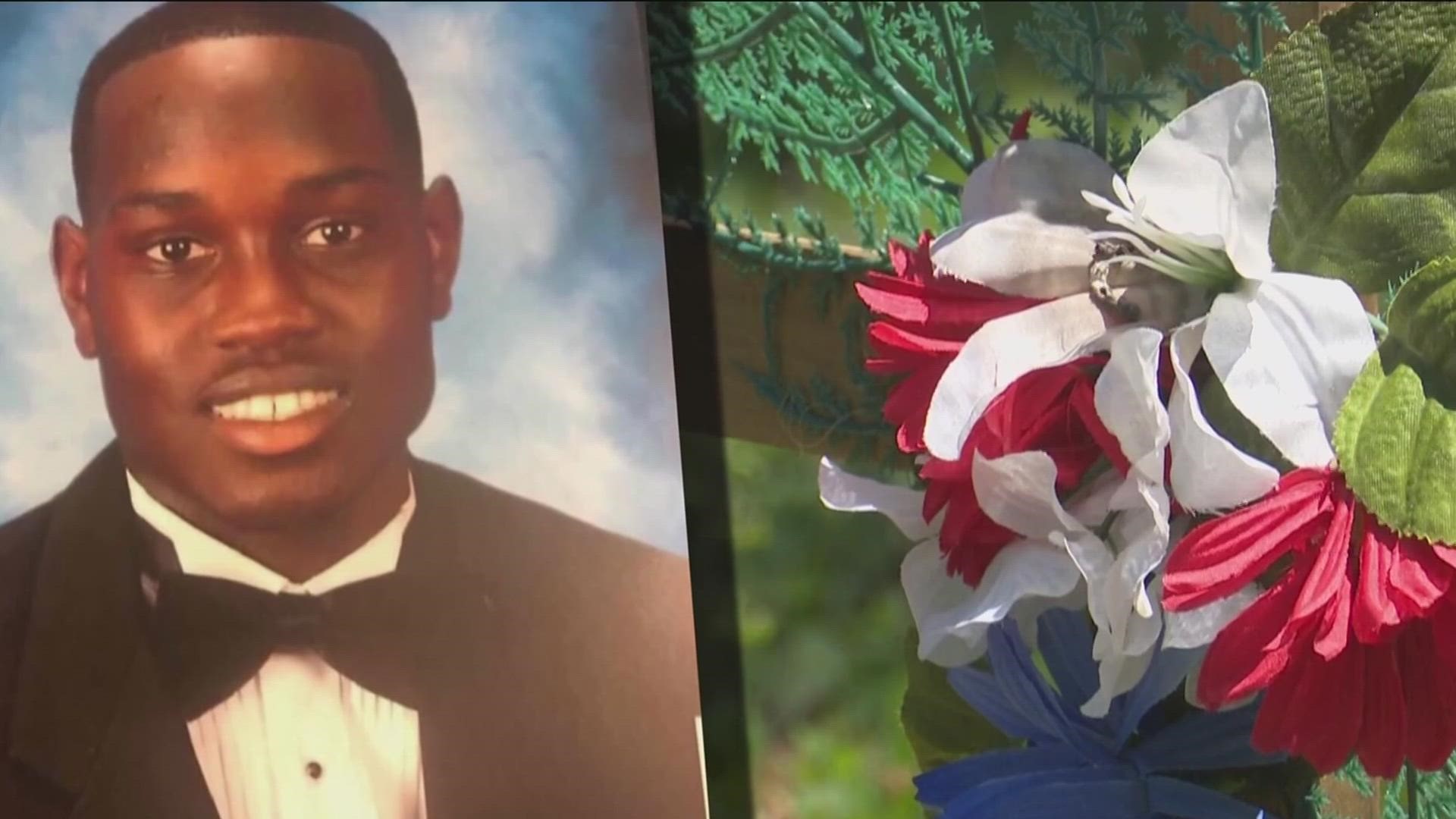BRUNSWICK, Ga. — The aunt of Ahmaud Arbery encourages everyone to honor his life on Thursday by taking part in the 2.23-mile memorial run or even something as simple as reaching out to a loved one to check on them.
House Resolution 688 passed in 2022 and declared that "Feb. 23 will forever be known annually in the State of Georgia as The Ahmaud Arbery Day," urging Georgians to participate in the "Run with Maud" movement, which holds the memorial run each year.
The resolution makes special note of how Arbery inspired the passing of the first hate crimes law in Georgia as well as the repealing of the state's slavery-era citizen's arrest statute.
11Alive spoke with Arbery's aunt, Thea Brooks, who honors her late nephew through activism. Since his death, she's created a nonprofit where she works with families and people who are victims of gun violence and police brutality. She also tells us she now plans to take her advocacy to the next level and run for office.
"I'm just pretty much going to say I'm going to let the Lord lead me in a direction that I should go," Brooks said. "We sometimes try to do things on our own, and God wants us to do other things. So I'm just going to wait and trust the process."
Crowds of people will lace up their shoes for the third Ahmaud Arbery Day in Georgia and take a run to commemorate his life. Several local lawmakers are also expected to take part in the run on Thursday.
"You never know, " Georgia State Representative Sandra Scott said, who helped introduce the Ahmaud Arbery Day, House Resolution 688. "It was Ahmaud yesterday; it could be my son or anyone else's son next."
The run is set for Thursday at 6 p.m., starting on Atlanta's BeltLine Westside Trail.
MORE ON THE CASE
In Feb. 2020, Arbery was jogging in a south Georgia neighborhood near Brunswick in Glynn County when authorities said he was chased, shot and killed. Arbery, a Black man, was pursued by three white men: Travis McMichael, his father Gregory McMichael and their neighbor William "Roddie" Bryan.
They were convicted of murder just before Thanksgiving last year. While the state trial concluded, the men still had to face the federal charges. They were later imprisoned due to Georgia's minimum sentencing guidelines.
Testimony in the hate crimes trial included the recollections of neighbors and investigators, forensic and autopsy evidence and the viciously racist and, at times, violent texts and social media posts of Travis McMichael, along with racist communications by Greg McMichael and Bryan.
Some of the evidence in the trial, including racially-charged texts and social media posts, presented during the federal trial wasn't included in the state trial.
Arbery’s family also filed a federal lawsuit on the first anniversary of his death, which also claimed the men violated his civil rights.
The Associated Press contributed to this report.

